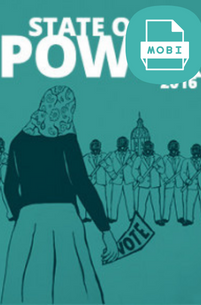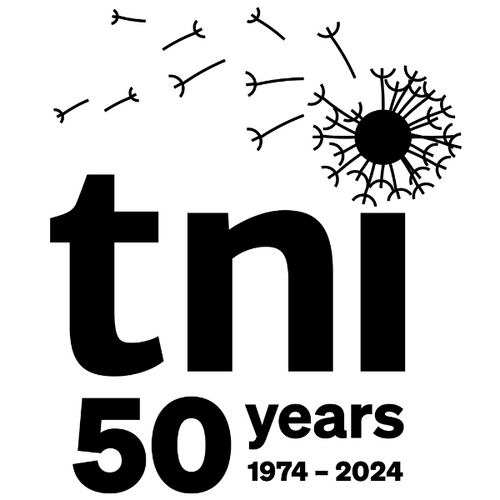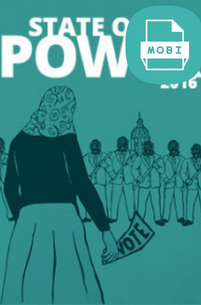Transnational Institute
State of Power 2016 Democracy, sovereignty and resistance (Mobi)
State of Power 2016 Democracy, sovereignty and resistance (Mobi)
Couldn't load pickup availability
TNI's fifth annual State of Power 2016 report explores the intersect of power and democracy. Featuring prominent activists and academics, its essays feature the long battle between economic power and popular democracy, expose the different powers seeking to undermine democracy today, and tell the stories of radical popular democratic alternatives emerging worldwide.
Introduction
Hilary Wainwright
Building a real democracy in the face of corporate and financial power will require a rethinking of power and agency, unleashing the creative, experimental, knowledge-sharing and emancipatory approaches of social movements
Democracy, power and sovereignty in today’s Europe
Yanis Varoufakis
In a wide-ranging interview, former Greek Finance Minister Yanis Varoufakis, argues that the nation-state is dead and democracy in the EU has been replaced by a toxic algorithmic depoliticisation that, if it is not confronted, will lead to depression, disintegration and possibly war in Europe. He calls for a launch of a pan-European movement to democratise Europe, to save it before it is too late.
A global post-democratic order
Leigh Phillips
In the era of globalisation, the steady removal of decision-making from democratic chambers by EU elites is serving as a blueprint for post-democratic governance around the world. Progressives must be ambitious and start putting forward ideas for a democratic world government as a viable alternative
Economics as ideology: challenging expert political power
Elaine Coburn
Economics often appears boring, but this narrow, mostly male dominated profession decides on matters intimately bound up with questions of power, democracy and vital matters of health, education, social welfare and the environment. Meaningful democracy requires the participation of ordinary people in economic debates, so that they can shape their own lives in solidarity with others.
The tyranny of global finance
Walden Bello
Against all expectations, financial capital has emerged even stronger after the financial crisis having staved off regulation and putting the blame on public spending. But its victory is likely a pyrrhic one as a new crisis looms, one in which the global public could learn from victories such as reforms in Iceland and finally reassert its control over money.
Multi-stakeholderism: a corporate push for a new form of global governance
Harris Gleckman
The World Economic Forum’s Global Redesign Initiative is perhaps the best reflection of how corporations and other elites envision the future of governance. It calls for marginalising intergovernmental decision-making with a system of multi-stakeholder governance, but what does this mean for democracy, accountability and the rule of law?
Case study: nutrition and food – how government for and of the people became government for and by the TNCs
Flavio Luiz Schieck Valente
Advocating multistakeholderism in the area of food and nutrition has been one of the main strategies for advancing a pro-corporate agricultural agenda that results in dispossession of small-scale farmers.
“To change the heart and soul”: How elites contained the global climate justice movement
Herbert Docena
Corporate executives and climate skeptics that mobilise against strong international climate change agreements have rightly been the focus of attention of many people concerned about the climate crisis. But another group of elites—those who actually believe in climate change —may paradoxically have done more to block effective solutions to the crisis.
Precarity, power and democracy
Tom George
The increasingly precarious nature of work and life poses a serious threat to democracy as it undermines our social fabric, atomizes individuals and seeks to personalize blame for economic insecurity. What potential is there for ‘the precariat’ to become a new kind of social movement with a collective vision to reimagine contemporary life?
Freedom technologists and the future of global justice
John Postill
In the wake of early 2010s upheavals such as the Arab Spring, Spain’s indignados, or the global Occupy movement, many commentators were quick to either invoke the presumed tech-savvy of ‘digital natives’ or the purported ‘cyber-utopianism’ of net freedom advocates who supported the protests. But what role have internet freedom activists – or ‘freedom technologists’ – played in ongoing struggles for progressive political change around the world and how can the pursuit of liberty be combined with the struggle for social justice?
The open source city as the transnational democratic future
Bernardo Gutierrez
Experiences and experiments in Spain, Brazil, Istanbul and other cities suggest that a transnational municipalism, based on concepts of an open source city (free online tools and active citizen participation), has the potential to regenerate democracy and build a geopolitics of the commons against neoliberalism.
Power in India: radical pathways
Ashish Kothari & Pallav Das
India has strongly entrenched power hierarchies that have historical roots but have also been exacerbated by inequalities and injustices that have deepened with economic globalisation. However grassroots political movements are emerging in India that could signal a gradual shift to direct or radical democracy, coupled with making representative democracy more accountable and ecologically sustainable.
Shipping & Returns
Shipping & Returns
Shipping sent using Post NL.
Orders sent from the TNI office during office hours Monday to Friday. Delivered to the post office. The TNI office is in the Netherlands.
If the item is digital. Please ignore postage information.


